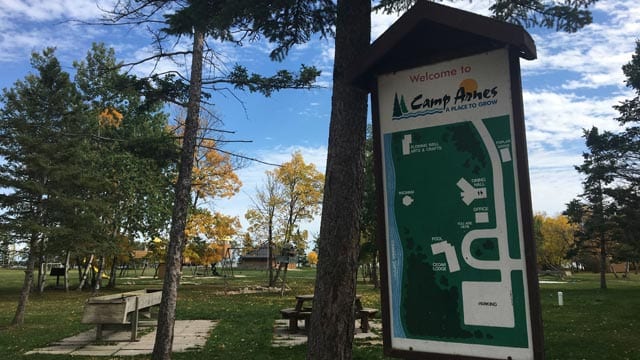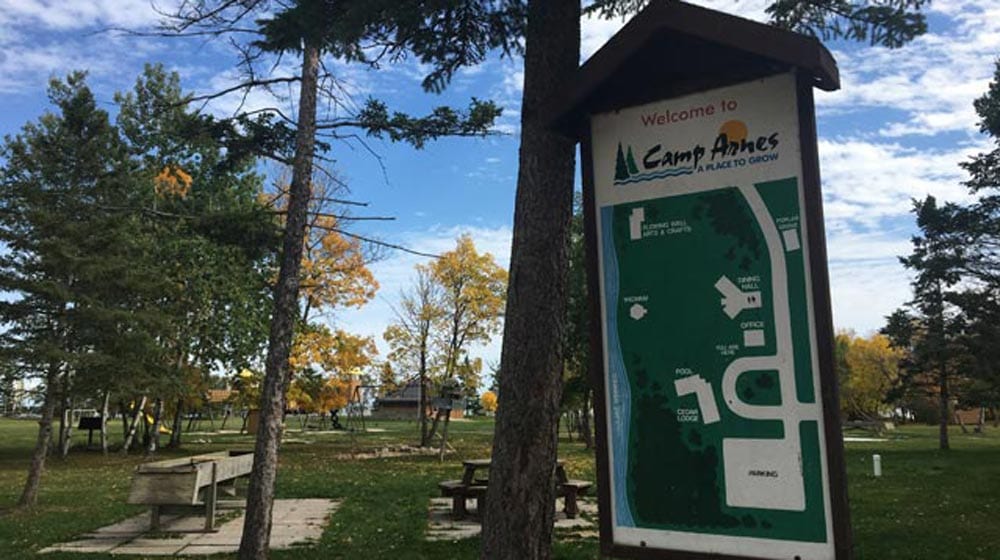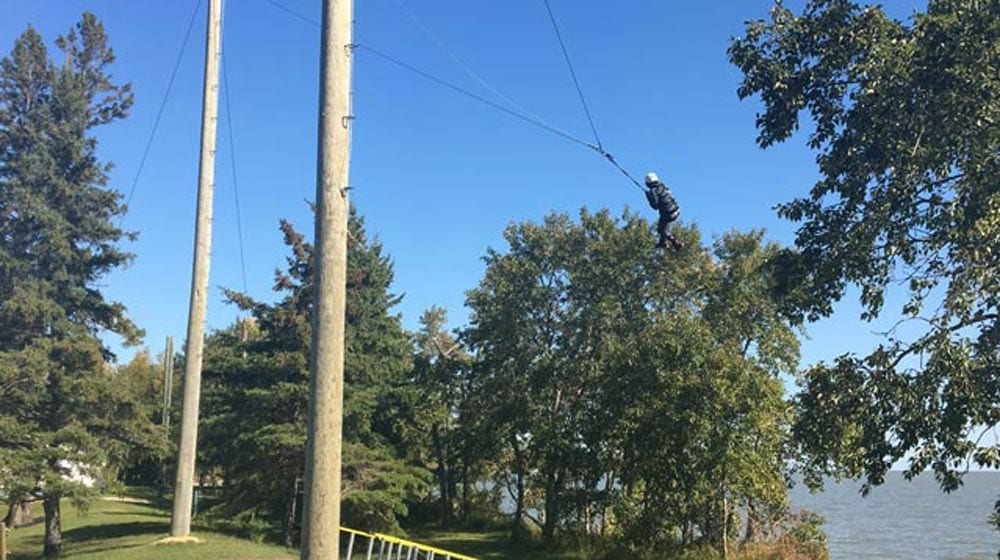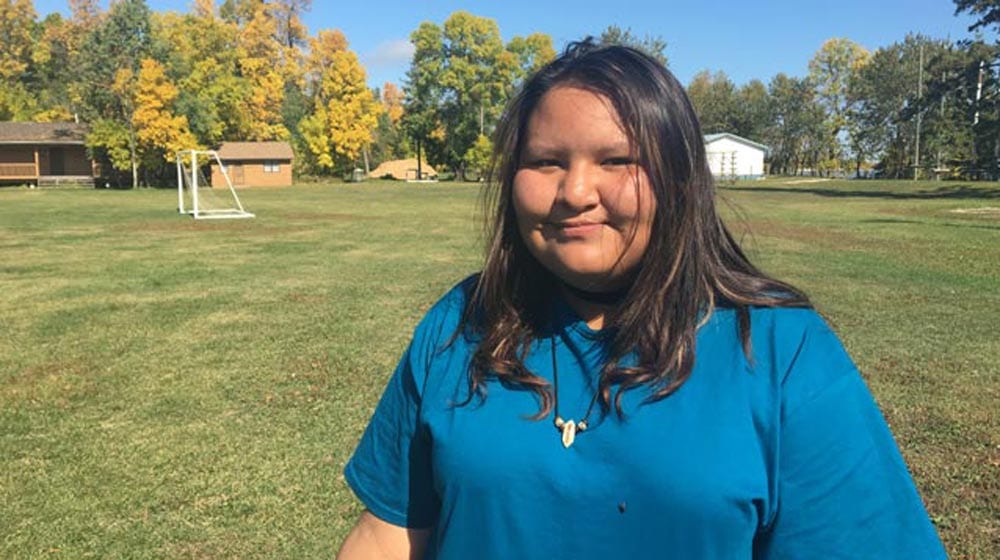
It’s a sunny September morning and a group of 22 boys and girls from Manitoba and Saskatchewan are spending the last remaining moments of summer outside while they still have the chance.
One half of the group is running, jumping and skipping across a wooden play structure – the other half is taking turns strapping themselves into a device, which is unofficially called the “Big Swing.”
For many of these kids this is the first time they are meeting one another, and Camp Trailblazers is the event bringing them together.
For three nights the group stayed at Camp Arnes, located about 110 km north of Winnipeg, where they got to take part in normal camp activities such as swimming, horseback riding and bonfires.
(The Big Swing at Camp Arnes. Photo: Brittany Hobson/APTN)
The days were also broken up by workshops on the reason that brought them all there together.
The camp was started 17 years ago and is an extension of AboutFace, a charitable organization based in Toronto that works with people living with facial differences.
According to their website, “AboutFace’s mission is to promote and enhance positive mental and emotional well-being of individuals with facial differences and their families through social and peer support, information, educational programs and awareness.
For one weekend in the year the camp gives kids a chance to connect with others who are living with similar experiences.
Over the past couple of years, the organization has been working with various First Nations to help identify kids who may benefit from the camp, according to Annette Simms, the program manager for AboutFace.
“Once we started to do a lot more outreach, we did get to see the outreach within the camp environment but ended up noticing there are a lot of individuals within the Indigenous population that are impacted by facial difference and there aren’t a lot of supports that are really out there,” said Simms.
This year a handful of the kids attending come from Indigenous communities in Manitoba and Saskatchewan.
One of those is Kassidy Taylor.
(Kassidy Taylor. Photo: Brittany Hobson/APTN)
The 17-year-old is from Sioux Valley Dakota Nation in Manitoba. This is her second and last year attending the camp.
The cut-off age is 18 but that will change to 17 next year.
“I was thinking about that next year coming back as a counsellor,” said Taylor “Well try anyways so I can volunteer with kids.”
The teen is in her last year of high school and preparing for a career working with kids. She says her favourite thing to do is look after her nieces and nephews.
It’s almost lunchtime but first Taylor has to take her turn on the “Big Swing.” She’s the last of the group to take a turn. A little coaxing from fellow camper Summer Bear helps make things easier. The two only met the night before but became fast friends.
“I like her laugh. She’s funny. She makes me laugh,” said Taylor. “I like people that make me laugh because I can make them laugh too.”
(Summer Bear. Photo: Brittany Hobson/APTN)
The feeling is mutual for Bear. The 14-year-old traveled from Meadow Lake, SK to attend the camp. This is her third year.
“There’s mostly more people that’s new that come here every year and I would like to meet them,” she said after conquering the “Big Swing.”
After lunch the group splits into two again for “AboutFace Time.”
Here kids learn various skills to help them express their feelings. This includes looking at the benefits of music and art when it comes to dealing with mental health.
“Within our programming we do focus a lot on mental health and being able to send kids home with a tool box per se to be able to have a more positive mental health status,” said Simms.
Simms says it’s all about empowering and encouraging the kids to express themselves in a safe environment.
Part of that is education. Sharing circles are another element in the camp experience. Kids are encouraged to share what its like living with facial differences: the good, the bad and the in-between.
For Taylor being able to look at faces similar to hers provides a sense of comfort she doesn’t always get back home.
“I’m just happy to come because in my rez everyone’s normal and I’m just the only person there that’s not,” said Taylor. “Coming here just makes me feel better about myself because I’m not different from the rest of them. I’m just like them in a different way.”
Camp Trailblazers also takes place in Nova Scotia and Ontario. An adult retreat takes place in Ontario with a British Columbia pilot project taking place this year. For the first time this year AboutFace is operating a family camp Newfoundland and Labrador and British Columbia.













